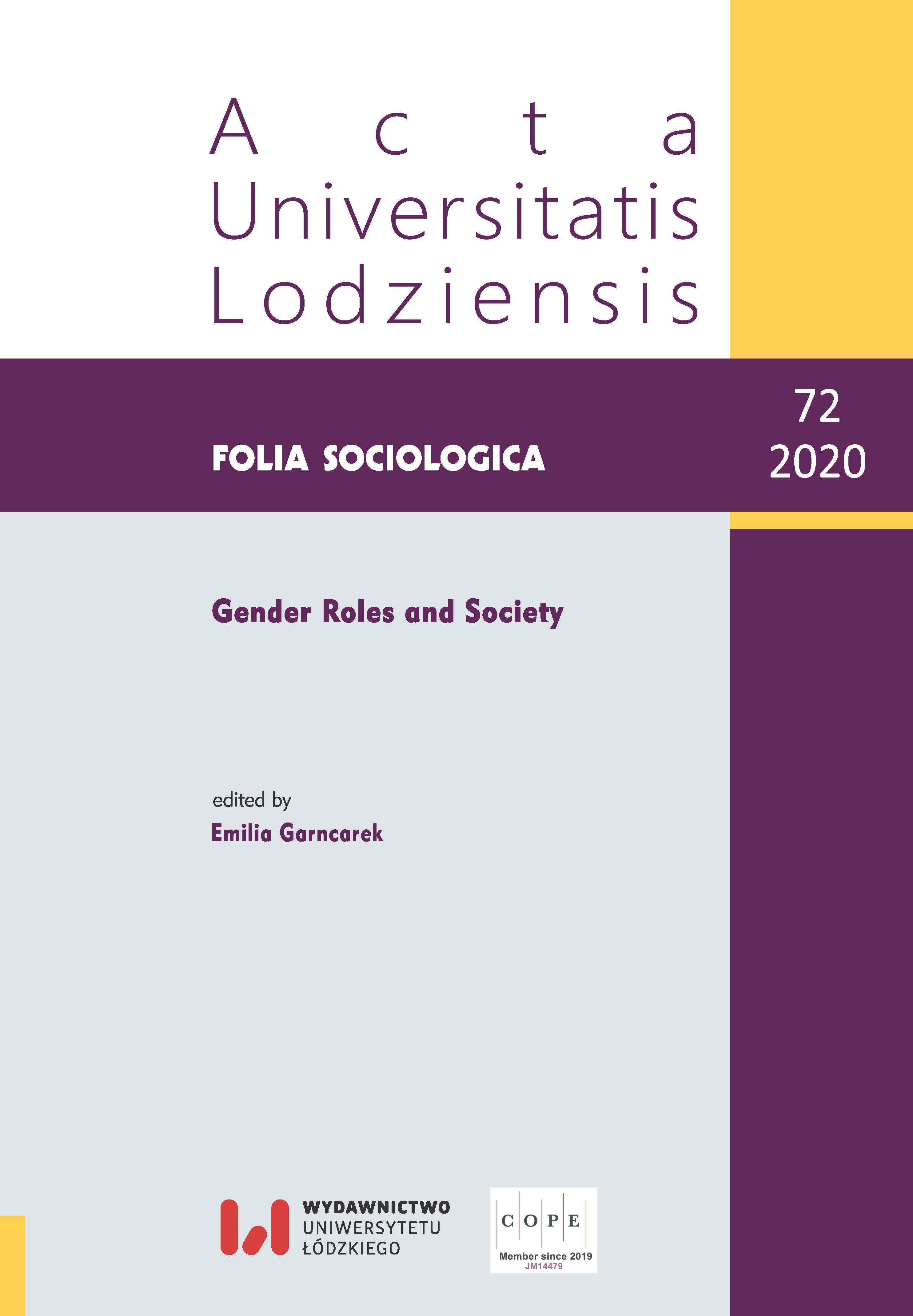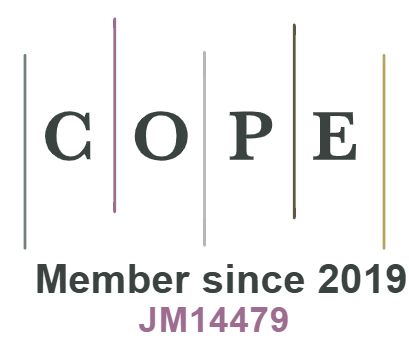Odzyskiwanie głosu – zmiana paradygmatu w badaniu transpłciowości
DOI:
https://doi.org/10.18778/0208-600X.72.04Słowa kluczowe:
transpłciowość, dewiacja, paradygmat, medycynaAbstrakt
Celem prezentowanego tekstu jest ukazanie, jak zmieniło się w ciągu ostatnich lat to, jak na gruncie nauki analizuje się transseksualność/ transpłciowość, jak ścierają się ze sobą dwa rodzaje dyskursów – medyczny i społeczny. Efektem tego starcia stało się zmienienie medycznego zawłaszczania transseksualności jako zjawiska wyłącznie medycznego, klasyfikowanego jako odstępstwo od normy. Konsekwentnie też w tekście będą stosowane terminy ukazujące pewną przemianę w podejściu do opisywanego zjawiska – od transseksualizmu, przez transseksualność do współczesnego trans osoby/ osoby z transseksualnością. Ta nomenklatura odzwierciedla bowiem pewną dostrzegalną zmianę paradygmatu.
Bibliografia
Bem L.S. (2000), Męskość kobiecość. O różnicach wynikających z płci, Gdańskie Wydawnictwo Psychologiczne, Gdańsk.
Google Scholar
Bieńkowska M. (2011), Dylematy badacza – wybrane niuanse z badań nad transseksualizmem, [in:] K. Slany, B. Kowalewska, M. Ślusarczyk (eds.), Kalejdoskop Genderowy. W drodze do poznania płci społeczno-kulturowej w Polsce, Wydawnictwo Uniwersytetu Jagiellońskiego, Kraków.
Google Scholar
Bieńkowska M. (2012), Transseksualizm w Polsce. Wymiar indywidualny i społeczny przekraczania binarnego systemu płci, Wydawnictwo Uniwersytetu w Białymstoku, Białystok.
Google Scholar
Bieńkowska M. (2013), Transobywatelstwo po polsku. Transseksualista/tka jako obywatel, “Pogranicze. Studia Społeczne”, no. 22, pp. 172–183.
Google Scholar
Buczkowski A. (2005), Społeczne tworzenie ciała. Płeć kulturowa i płeć biologiczna, Wydawnictwo Universitas, Kraków.
Google Scholar
Dynarski W., T jak trans, http://www.innastrona.pl/magazyn/bequeer/transseksualizm-transplciowosc.phtml (accessed 1.06.2012).
Google Scholar
Ekins R., King D. (2006), The Transgender Phenomenon, Sage, London.
Google Scholar
Fajkowska-Stanik M. (2001), Transseksualizm i rodzina. Przekaz pokoleniowy wzorów relacyjnych w rodzinach osób transseksualnych, Uniwersytet Humanistycznospołeczny SWPS, Warszawa.
Google Scholar
Foucault M. (1993), Nadzorować i karać. Narodziny więzienia, Aletheia, Warszawa.
Google Scholar
Garfinkel H. (2007), Studia z etnometodologii, Wydawnictwo Naukowe PWN, Warszawa.
Google Scholar
Goffman E. (2005), Piętno. Rozważania o zranionej tożsamości, transl. A. Dzierżyńka, J. Tokarska-Bakir, Gdańskie Wydawnictwo Psychologiczne, Gdańsk.
Google Scholar
Hale J. (1997), Suggested Rules for Non-Transsexuals Writing about Transsexuals, Transsexuality, Transsexualism, or Trans, https://hivdatf.files.wordpress.com/2010/09/suggested-rules-for-non-modified.pdf (accessed 20.05.2019).
Google Scholar
Hines S. (2007), TransForming gender. Transgender practices of identity and intimacy and care, The Policy Press, Bristol.
Google Scholar
DOI: https://doi.org/10.2307/j.ctt9qgpqw
Hines S. (2008), (Tran)formacja gender: zmiana społeczna i transgenderowe obywatelstwo, transl. M. Maciejewska, [in:] E.H. Oleksy (ed.), Tożamość i obywatelstwo w społeczeństwie wielokulturowym, Wydawnictwo Naukowe PWN, Warszawa.
Google Scholar
Itani S. (2011), Sick but Legitimate? Gender Disorder and New Gender Identity Category in Japan, [in:] P.J. McGann, D.J. Hutson (eds.), Sociology of Diagnosis, Howard House, Emerald Group Publishing Limited, Bingley.
Google Scholar
DOI: https://doi.org/10.1108/S1057-6290(2011)0000012017
Karnat-Napieracz A., Liber Z. (2015), Odczarować ZWDPF – zespół wrodzonej dezakceptacji płci fenotypowej. Refleksje wokół książki Małgorzaty Bieńkowskiej Transseksualizm w Polsce. Wymiar indywidualny i społeczny przekraczania binarnego systemu płci (2012), “Aerument. Biannual Philosophical Journal”, vol. 5, pp. 501–518.
Google Scholar
Kłonkowska A. (2012), Czy potrzebna nam płeć? Zjawisko androgynii wobec dychotomii płci, [in:] A. Kłonkowska (ed.), Transpłciowość – androgynia. Studia o przekraczaniu płci, Wydawnictwo Uniwersytetu Gdańskiego, Gdańsk.
Google Scholar
Kłonkowska A. (2017), Płeć dana czy zadana. Strategie negocjacji (nie)tożsamości transpłciowej w Polsce, Wydawnictwo Uniwersytetu Gdańskiego, Gdańsk.
Google Scholar
Matusumoto D., Juang L. (2007), Psychologia międzykulturowa, transl. A. Nowak, Gdańskie Wydawnictwo Psychologiczne, Gdańsk.
Google Scholar
Rzeczkowski M., marcinrzeczkowski.com (accessed 10.01.2012).
Google Scholar
Shilling C. (2010), Socjologia ciała, Wydawnictwo Naukowe PWN, Warszawa.
Google Scholar
Stryker S. (2006), (De)Subjugated Knowledges. An introdaction to Transgender Studies, [in:] S. Stryker, S. Whittle (eds.), The Transgender Studies Reader, Routledge, New York–London.
Google Scholar
Stryker S., Whittle S. (eds.) (2006), The Transgender Studies Reader, Routledge, New York–London.
Google Scholar
Whittle S. (2006), Foreword, [in:] S. Stryker, S. Whittle (eds.), The Transgender Studies Reader, Routledge, New York–London.
Google Scholar
http://www.wpath.org/documents2/socv6.pdf/ (accessed 10.02.2012).
Google Scholar
https://www.biography.com/people/lili-elbe-090815 (accessed 20.02.2019).
Google Scholar
Pobrania
Opublikowane
Jak cytować
Numer
Dział
Licencja

Utwór dostępny jest na licencji Creative Commons Uznanie autorstwa – Użycie niekomercyjne – Bez utworów zależnych 4.0 Międzynarodowe.










